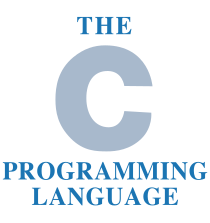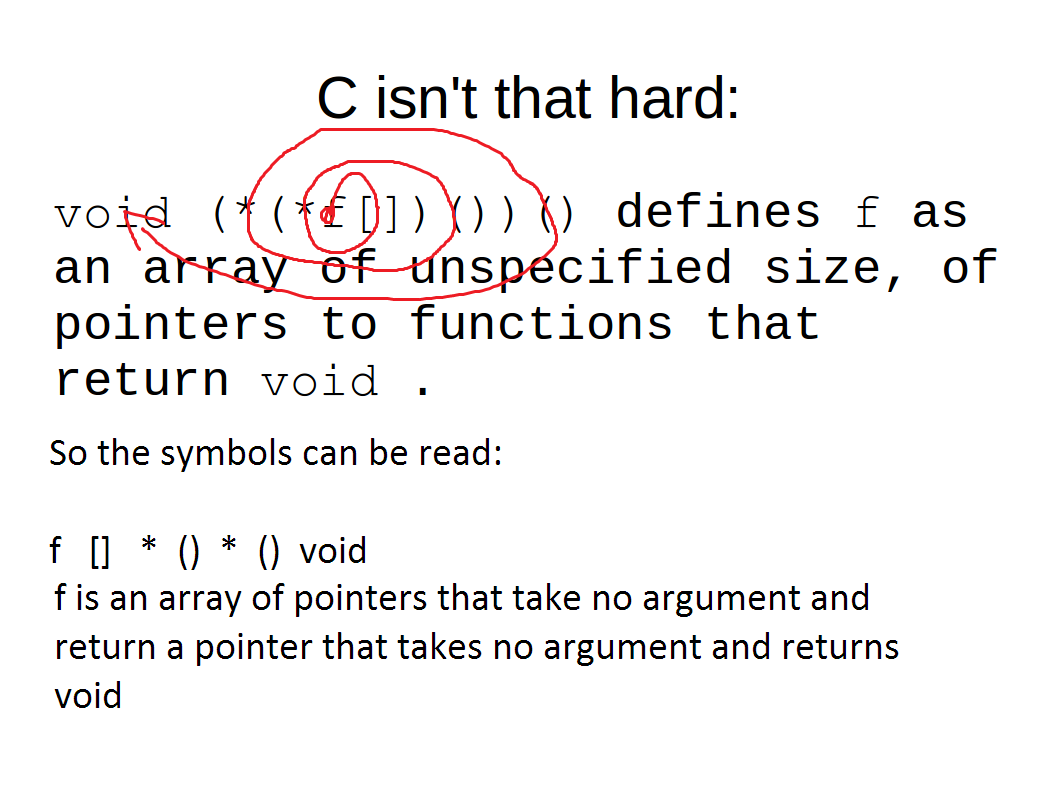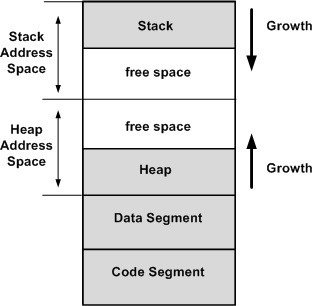C Programming
General-purpose, imperative, low-level, memory management, compiled

"C was originally developed at Bell Labs by Dennis Ritchie between 1972 and 1973 to make utilities running on Unix" -Wiki

Control Statements
- If-statements
- While-loops
- Do-whiles
- For-loops
- Switch-statements
- Gotos
if ( 1 && !0 ){
printf("Non-zero is true\n");
} else {
printf("!0 is 1\n");
}while ("Is this non-zero?") {
printf("Who thinks yes?\n");
} int i; /* C99 */
for (; i < 10; i++) {
print("What is wrong with this?\n");
}/* What might this snipped be used for? */
switch(ast_node->type) {
case INT:
return atoi(ast_node->data);
case PLUS:
int a = process(ast_node->left);
int b = process(ast_node->right);
return a + b
default:
printf("There was an error\n");
exit(1); /* What does exit 1 mean? */
}C:
B:
if (a) {
goto A;
}
A:
if (b) {
goto B;
}
a = ~a;
b = ~b;
goto C;Pointers & Dynamic Memory
What are pointers used for in C?
- referencing memory on the stack or heap
- referencing arrays
- extra return values
What are pointers used for in Java?
- Objects, Objects, Objects


//stack memory, how many bytes are used?
int a[10] = {42, 0};
//pointer to stack memory
int *pa = a;
//pointer to heap memory
int *b = malloc(sizeof(int)*10);
//pointer to heap memory pointing to pointers,
// how many bytes are used?
int **c = malloc(sizeof(int*)*3);
c[0] = b;
c[1] = b;
c[2] = a+1;
**(c+2) = 72;
printf("What is c[2][0]? %d\n", c[2][0]);
printf("What is c[2][-1]? %d\n", c[2][-1]);Referencing memory on the stack or heap
Arrays are contiguous blocks of memory. Static 2D Arrays are contiguous, but not Dynamic 2D Arrays
Pointers & Dynamic Memory
These data structures and how they are represented in memory are important!
int foo(int x, int y, int *z) {
if (x > 0 && y > 0){
*z = x*y;
return SUCCESS;
}
return FAILURE;
}
int main() {
int a = -1;
if (foo(1, 2, &a) == FAILURE) {
return 1;
}
printf("%d\n", a);
return a;
}How do you return multiple items from a function?
Sometimes one return value is not enough, so pointer as arguments can help receive more data from a function.
Pointers & Dynamic Memory
Stack and Heap
What is the Stack?
What is the Heap?

*if you know where to look
- Memory used to separate function frames for local memory usage
- Starts at a high address and grows down
- Dynamic memory that is globally accessible*
- Must be allocated & freed manually
C experts now?
/* 1. What is wrong here? */
int *baz(){
int i = 10;
return &i;
}/* 2. Is this valid? */
int *bar() {
static int i = 5;
return &i;
} /* 3. Is this valid? */
int *foo() {
void *yeet = malloc(sizeof(double)*10);
return (int *)yeet;
}
/* 4. Is this valid? */
int main() {
char *yeett = (char *)foo();
printf(yeett);
/* 5. Missing something? */
return 0;
}Why do we care about details like these?
What does the stack look like?
int *foo(int c, int d) {
char e;
void *yeet = malloc(sizeof(c)*d);
/* Stop! */
return (int *)yeet;
}
int main(int argc, char *argv[]) {
int a = 5, 3;
int b = 7;
char *bar = foo((b,a),b);
return 0;
}High
Low
argv
argc
ret addr
old base
5
7
5
7
ret addr
old base
junk
heap addr